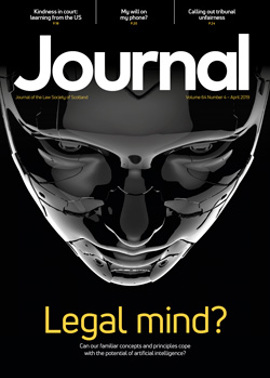Cases of the paperless will

In 2017, Queensland Supreme Court heard the case of an Australian man who died after committing suicide without making a formal will (Nichol v Nichol [2017] QSC 220). After his death, an unsent text message was discovered on his mobile phone addressed to his brother indicating that he wished to leave all he had to his brother. Whether or not the terms of the unsent text message could be given the necessary weight to be acted on as the will of the deceased was debated in the Supreme Court.
The court held that the directions and wishes contained within the unsent message should be followed on the basis that it seemed clear that these were the intentions of the deceased, particularly as the text message was composed around the time the deceased was considering taking his own life, and probably remained unsent to prevent his family from stopping him taking his own life.
Had these directions not been upheld, this would have resulted in the deceased dying intestate and his wife inheriting all of his estate.
Intentions as the test
In terms of formal validity, written wills in Queensland generally require to be signed by the testator and witnessed by two individuals. Solicitors in Scotland will be aware that this is similar to our own laws on formal validity in which wills are required to be signed at the foot of each page by the testator and witnessed by an individual on the last page, in terms of the Requirements of Writing (Scotland) Act 1995 (subject to exceptions for holograph wills and the like, etc).
However, the state of Queensland dramatically amended its formal validity laws in the Succession Amendment Act 2006, which, at Division 4, Subdivision 1, section 18 allows the courts to “dispense with execution requirements” of wills where a document “purports to state the testamentary intentions of a deceased person”. The meaning of “document” is defined in sched 1 to the Acts Interpretation Act 1954 as “any disc, tape or other article or material from which sounds, images, writings or messages are capable of being produced or reproduced (with or without the aid of another article or device)”.
This allows for a greater variety of items to be held as valid wills, so long as the intention of the testator is evident. Scots law, however, has no such flexibility when it comes to acceptance of wills that are not in written format. A survey by charitable organisation Will Aid, published in September 2018, revealed that more than half of Brits surveyed admitted to not having a will. With the Digital Age upon us, technology is evolving at an alarming rate and the younger generation are much more reliant on smartphones for storing reminders, appointments and for communicating with friends, colleagues, organisations etc, and that is simply not going to change.
Currently under Scots law, and as stated above, for a will for be formally valid it must be signed on each page and witnessed on the last page. At the heart of this is that in order to act on the terms of the will and carry out the wishes of the testator, the principal paper will is required – a copy of the signed will is simply not acceptable.
Scots law should consider reforming its current succession legislation to relax the formal validity generally required for written wills, where the intentions of the testator are clear. This would mirror the position in Queensland. There is already a consultation underway by the Law Society of England & Wales to adopt a similar position.
Public perceptions
In a profession moving more and more towards being a “paperless society” to address environmental concerns and, probably more importantly, storage and space saving concerns, we now store information on “the cloud”; we also scan in documents and save them electronically and email what we can to clients. There appears to have been a general shift in perception by individuals with regard to paper documents in recent years – many conveyancing solicitors will be all too familiar with having to obtain copy building warrants, completion certificates, NHBC certificates etc as clients failed to hold on to these and store them safely.
While it would be all too easy to say that any issues of interpretation of unsent text messages or DVDs (another example of the Queensland Supreme Court allowing for the testator’s intentions to be upheld in the absence of a formally valid written will, in Mellino v Wnuk [2013] QSC 336) could be avoided if individuals would just make that appointment with a solicitor to make a formal will, it still does appear to be the case that many do not make wills. This may be due to a general reluctance to go to a solicitor, the cost of a will in a “live for the moment, forget about the future” society (although arguably it is cheaper in the long term to make a will than it is to die intestate, it is the estate of the intestate deceased – or their executor – that picks up the bill for intestacy after death), or the idea that talking about death and accepting that it will happen one day is uncomfortable. As a legal system, should we prevent or disallow individuals from expressing their testamentary intentions just because they refused to come to see us as solicitors to take our expert advice?
There is no doubt that when individuals attempt to make their own wills (the most common of these being handwritten, or “holograph” wills, or a will template from a “Make Your Own Will” kit – the sight of which usually makes the private client solicitor shudder!), problems can and do often arise, as individuals did not have the benefit of the advice of a solicitor as to the key elements that are required to be included in a will such as appointment of executor etc. However, most issues can be dealt with by submission of an initial writ and supporting evidence, if required, in terms of the Requirements of Writing (Scotland) Act 1995 or the Executors (Scotland) Act 1900. Generally speaking, it is therefore possible for solicitors to find a way for most written expressions of testamentary wishes to be set up as valid wills. Why should this not extend to other means or forms of expression?
There is very likely to be a concern in the profession of the risk of fraud in allowing other forms of digital or electronic “expression” to be considered reliable enough to reflect the testamentary intentions of the deceased. Saying that, however, not every written, formally valid will is witnessed in the presence of a solicitor – it could easily be the case in some cases that the testator was pressured into signing the will or perhaps lacked the required capacity at that moment, but how would anyone know that was the case? It could be argued that there may be less risk of fraud with, for example, a will made in person and recorded on a DVD or a smartphone, because the testator can be seen and their demeanour can be assessed.
It is accepted that the time and expense of having to take each case of this nature to court would be significant to the estate or family of the deceased and could add unnecessary time to the completion of the administration of the estate, but perhaps similar provisions could be introduced to allow a simple initial writ to be submitted to the sheriff court where there appears to be sufficient evidence that the digital or electronic “document” reflects the testamentary intentions of the deceased, perhaps in the form of affidavits by relatives or friends who had previous conversations with the deceased, or who could speak to the style in which the text/email etc was written or the demeanour of the deceased in an audio or visual file.
Law from another age
Of course, further discussion will be required on this, but with technology moving so quickly, Scots succession law cannot continue to serve effectively the individuals affected by Scots law by an Act from 1964 (long before the internet, smartphones etc), or with the overdue and underwhelming reform over 50 years later in 2016. The digital age is moving faster and in another 50 years’ time, there will be a deep hole in Scots succession law if reform is not considered quickly.
Technology and the digital age are not going to go away or become less prevalent. There is also another argument that the reliance on physical paper wills already in existence should be reconsidered, and the requirement of having to “prove the tenor” of a lost document in the Court of Session reformed, amended or relaxed in some way in this move towards a paperless society. But one step at a time…
In this issue
- Time to promote shared care?
- Client medical records: a matter of right
- Search for the route to healing
- Rights after “same roof”
- Are you a qualified creditor?
- Reading for pleasure
- Opinion: Allan Jamieson
- Book reviews
- Profile: John Laughland
- President's column
- ScotLIS update
- People on the move
- Common law and artificial life
- FAIs: addressing the concerns
- Challenging times
- Shared humanity
- Cases of the paperless will
- How to manage your legal practice for success
- Fairness v Convenience
- Moorov then and now
- Personal licences: the uncertainty continues
- Is Airbnb use a planning matter?
- Insolvency Rules: a positive realignment
- IR35 compliance moves up the ladder
- “Best interests” in the balance
- Scottish Solicitors' Discipline Tribunal
- PSG tackles index-linked rent reviews
- Finding the right seat
- Public policy highlights
- Accredited paralegal update
- Events, and more, for members
- Accredited Paralegal Committee profile
- Second thoughts on executor declarations
- Client communication – a continuous journey
- Reflections from the Commission
- Love my tender
- Ask Ash






